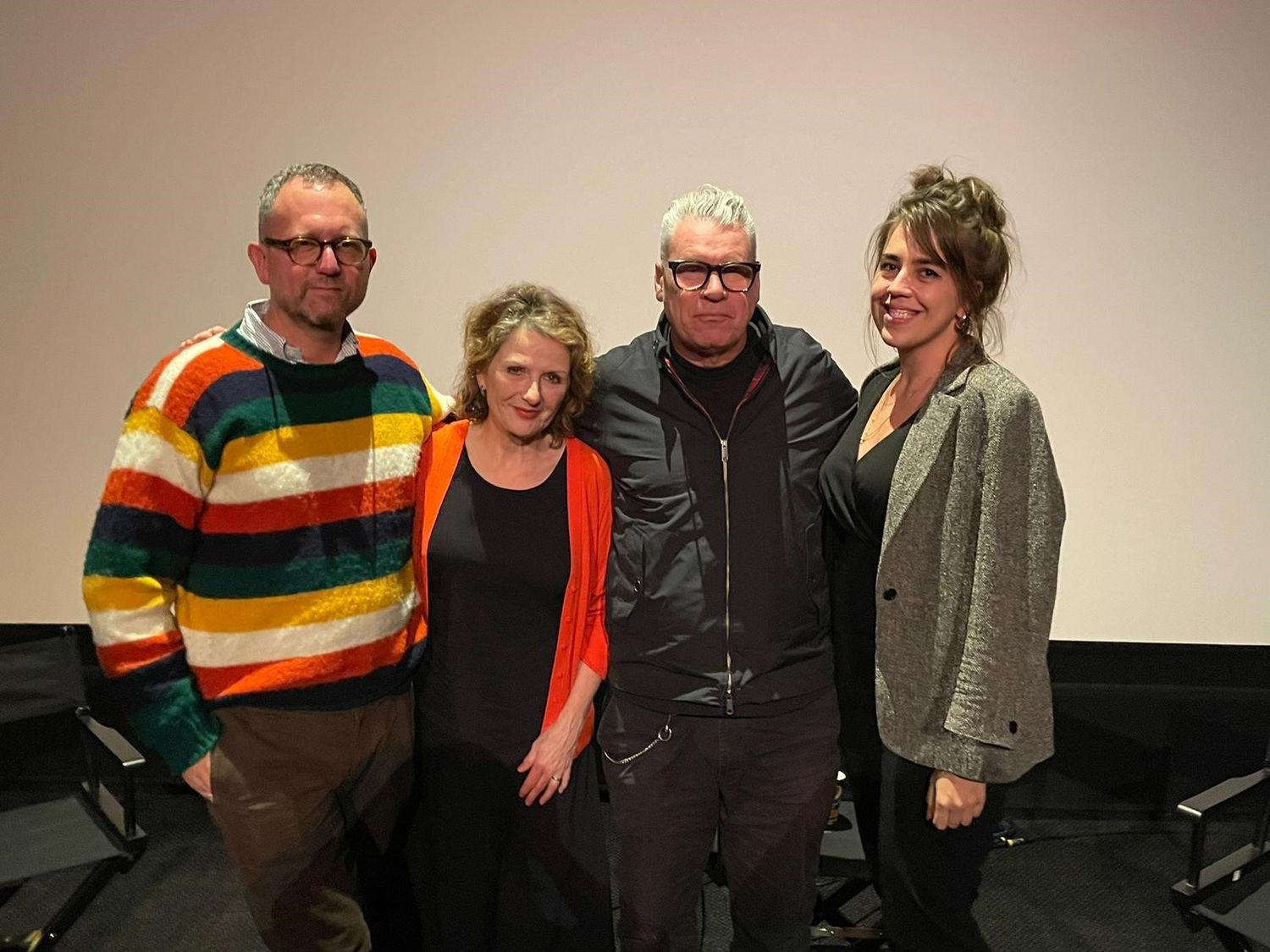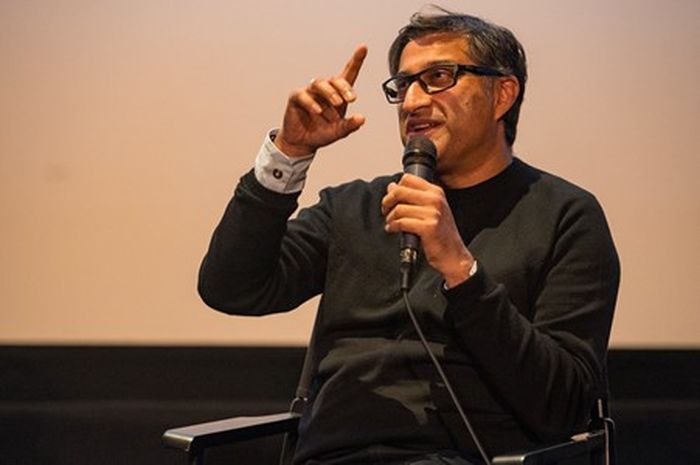“The Exorcist was designed to play in cinemas – that’s absolutely its natural home”. So says former chief film critic for The Observer (and well-established Exorcist super-fan) Mark Kermode, as we chat over a glass of wine at the Eagle on a stormy November evening. Talk about pathetic fallacy – after all, Kermode is in Cambridge to introduce a 50th anniversary screening of William Friedkin’s seminal (and equally tempestuous) horror film at the Arts Picturehouse, co-organised with Cambridge Film and Screen.
His relationship with The Exorcist might go back decades, despite its notoriously turbulent release history (“the video was still banned here as late as 1998”, he tells me, “I knew the film off by heart with Swedish subtitles!”) – but, for many younger cinema-goers, myself included, this is likely to be their first opportunity to watch the film on a big screen. “It’s just a completely different experience”, Mark says, “I think the main difference is the way it sounds in a cinema; The Exorcist has always been a film that relied on its soundtrack. And there’s obviously something wonderful about seeing it with an audience too.”
There are apparently no limits to Kermode’s encyclopaedic knowledge of The Exorcist; in a matter of minutes, I’m offered an impressively detailed history lesson on the film’s long cultural life, from its complicated production process right through to its controversial censorship by the BBFC in the latter decades of the 20th century: “not because it was a bad movie… the problem is it’s a very good movie and there was felt, at the time, to be pretty good evidence that it could be deeply disturbing for younger viewers”.
The only thing that seems able to curtail Mark’s enthusiasm is the occasional interruption to our conversation from fellow pub-goers; at least three people approach us with some variation of “are you that Mark Kermode off the telly?” – although I’m pleased to see that they’re never met with anything less than an entirely gracious response. He’s a good deal less agreeable, though, when we turn to the subject of The Exorcist: Believer, a film which swiftly came and went from UK cinemas earlier this year to overwhelmingly negative reviews from critics and audiences alike. “The whole reboot thing has just always been a completely cursed and stupid endeavour. It’s absolutely full of awful winks and nods to the original, but it’s really just a film made by people who’ve watched Friedkin’s film, but haven’t seen it, haven’t understood anything about it. The whole point of the original is it isn’t really about demonic possession at all. It’s not about Regan, it’s about everyone else in the house.”
“The whole reboot thing has just always been a completely cursed and stupid endeavour”
It strikes me that this new film is just one in a series of recent (largely fruitless) attempts to reboot classic horror franchises (I’m looking at you, David Gordon Green Halloween films), but Mark rightly points out that there’s nothing wrong, at least, with the principle. “People remake horror movies all the time – look at the great monster cycles, those stories are endlessly retold. There’s no reason why you can’t remake anything, but generally you should only do it if you’ve got something really interesting to do with the original”.
I wonder, then, if Kermode would apply this same notion of inspired reinvention to that well-trodden genre of the biopic – or, indeed, whether he agrees with director Asif Kapadia’s suggestion to me that, when exploring the lives of departed celebrity icons, the documentary form should reign supreme instead. “I don’t agree with Asif, no. I think he’s a brilliant documentarian, but I’ve also seen plenty of terrible documentaries that don’t get under the skin of their subjects at all, and just end up being hagiographies”. Kermode lauds the “adventurous” quasi-biopics of director Todd Haynes, including Superstar: The Karen Carpenter Story, which documents the pop icon’s struggles with anorexia using only Barbie dolls as actors, and I’m Not There, where six performers, including Cate Blanchett, portray wildly different versions of Bob Dylan. He also professes to being a fan of somewhat less radically experimental endeavours, including Austin Butler’s turn as Elvis Presley and Anthony Hopkins’ “wounded bear” portrayal of Richard Nixon. “Performances like those aren’t good because they’re necessarily ‘perfect’ imitations – they work because they capture something of the spirit of their subjects”.
It’s interesting to notice potential throughlines in those films that most attract Kermode’s coveted praise; his favourites of the past few years, from Petite Maman and Aftersun to this year’s Past Lives, all share an acute interest, in one way or another, with notions of childhood and memory, a sense of the past literally returning to haunt the present. “I’ll be honest, I think it’s a coincidence”, he says, “there’s no question that autobiography plays a part in why you love some movies – when I was reviewing Petite Maman, that particular film at that particular moment meant a lot to me because of the subject matter.”
“Any film that’s about memory is also, in a way, about cinema itself”
But, having said that, he doesn’t completely write off the idea of there being some kind of underlying connection: “I think one of the reasons that the medium of cinema is powerful is that it reproduces the medium of memory – we knew what films looked like before anyone invented moving pictures! It’s like that thing David Lynch has always said: we live inside a dream and film is a perfect expression of that. And those films that you’re talking about, they all tap into that idea – any film that’s about memory is also, in a way, about cinema itself”. “God, that’s a very broad and sweeping generalisation!”, he laughs soon after – but, even in that disarmingly self-effacing manner of a critic who, underneath his imposing reputation, remains, plainly and simply, a dyed-in-the-wool movie buff you can easily chat over a pint with… well, I’m not sure Kermode hasn’t hit the nail right on the head.


